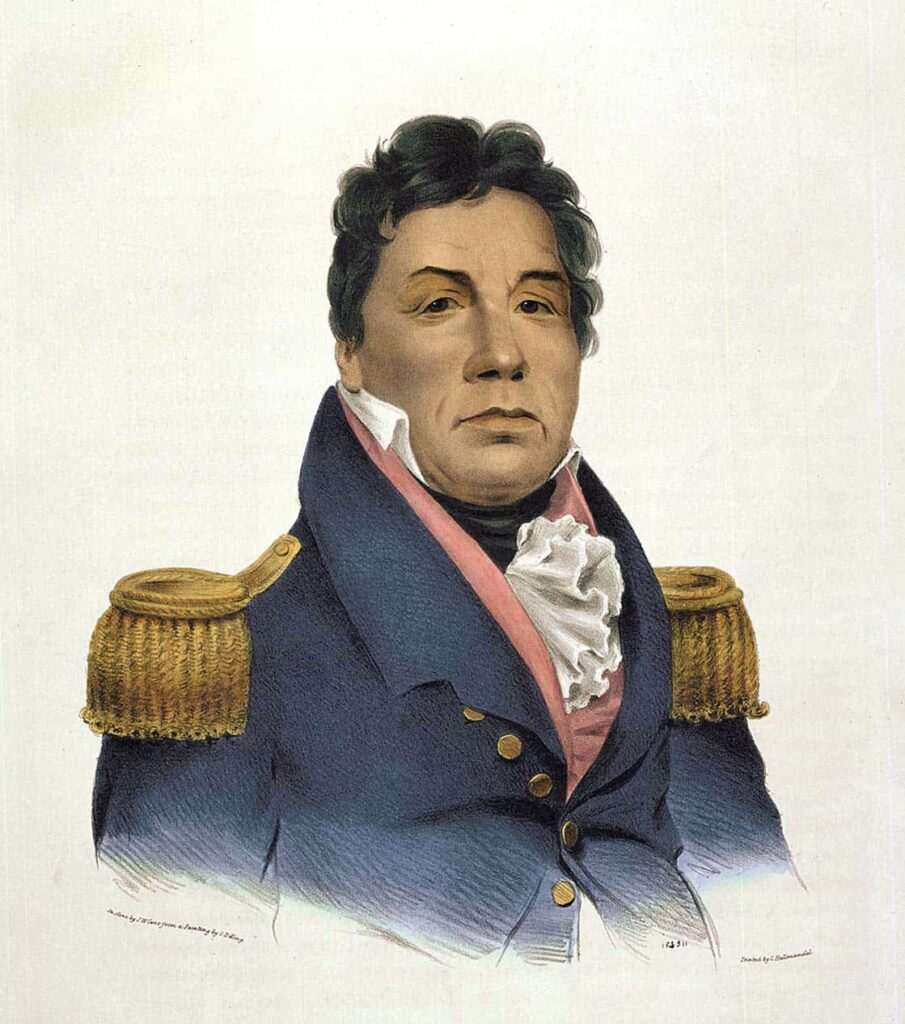
Pushmataha of the Choctaw nation was a chief, general in the U.S. Army, a statesman, a soldier, a warrior, and an orator. Although an unsung hero of the War of 1812 he is remembered by the Choctaw as one of their greatest leaders.
Born in 1764 on the Choctaw lands of Mississippi most of his early years are not well-documented. His prowess as a warrior in conflicts against the Osage, Caddo, and Creek tribes led to him being chosen as mingo, or chief of the Six Towns region, the southernmost in the Choctaw homeland. By 1800 his reputation as a spiritual and military leader was well established.
Tension was growing between the United States and Great Britain by 1811. On the frontier Shawnee leader Tecumseh traveled widely in an effort to unite Native American groups. On one such trip he addressed the assembled Choctaw urging them to resist White encroachment on tribal lands. Pushmataha spoke after Tecumseh with such eloquence that only a handful of Choctaw men followed the Shawnee leader north.
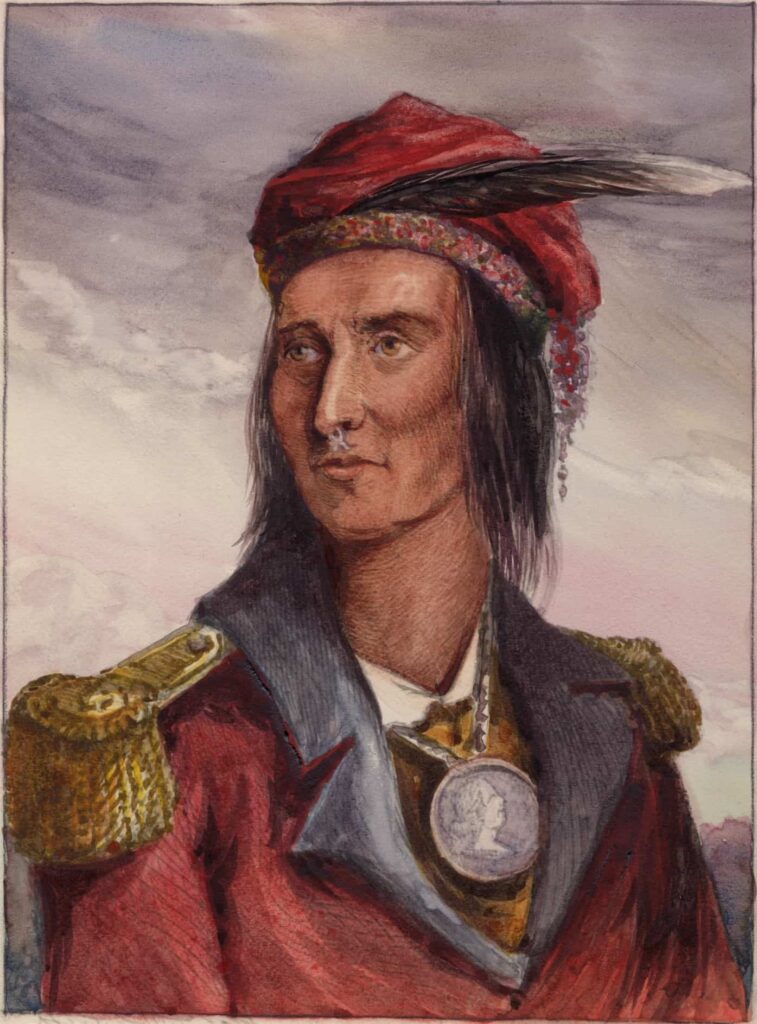
War was declared by the U.S. and Britain in mid-1812. A year later Pushmataha organized a force of 500 – 700 Choctaw warriors and was commissioned as a Lieutenant Colonel in the U.S. Army (later rising to Brigadier General). He led a hand-picked group to join General Ferdinand Claiborne in a successful attack on Creek forces at the Battle of Holy Ground. In 1814 Pushmataha took a larger force to join General Andrew Jackson’s army, culminating in the final defeat of the Creeks at the Battle of Horseshoe Bend.
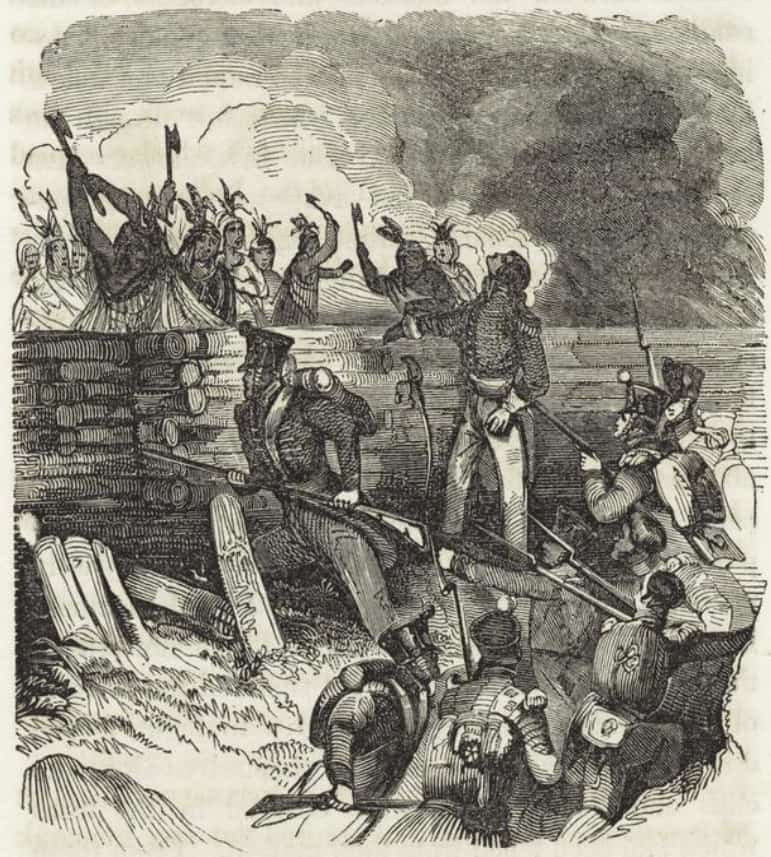
Upon his return Pushmataha was elected principal chief of the Choctaw people and urged that they learn useful agricultural practices from White farmers. He used his military pension to fund a Choctaw school system.
His negotiations of two treaties in 1816 and 1820 were successful but failure of the U.S. government to evict White settlers from lands granted to the Choctaw took Pushmataha and several other Native American leaders to Washington in 1824. He met with President James Monroe and Secretary of War John C. Calhoun but by the end of that year he had fallen ill with a respiratory infection. During his illness he was visited by his wartime comrade Andrew Jackson and made clear his wish for a military funeral – “When I am gone let the big guns be fired over me.”
Chief Pushmataha died on December 24, 1824 and was buried in Congressional Cemetery in Washington, DC. His headstone is inscribed:
Push-ma-ta-ha, a Choctaw chief lies here. This monument to his memory is erected by his brother chiefs who were associated with him in a delegation from their nation in the year 1824 to the general government of the United States.
Push-ma-ta-ha was a warrior of great distinction. He was wise in council – eloquent to an extraordinary degree and on all occasions & under all circumstances the white man’s friend.
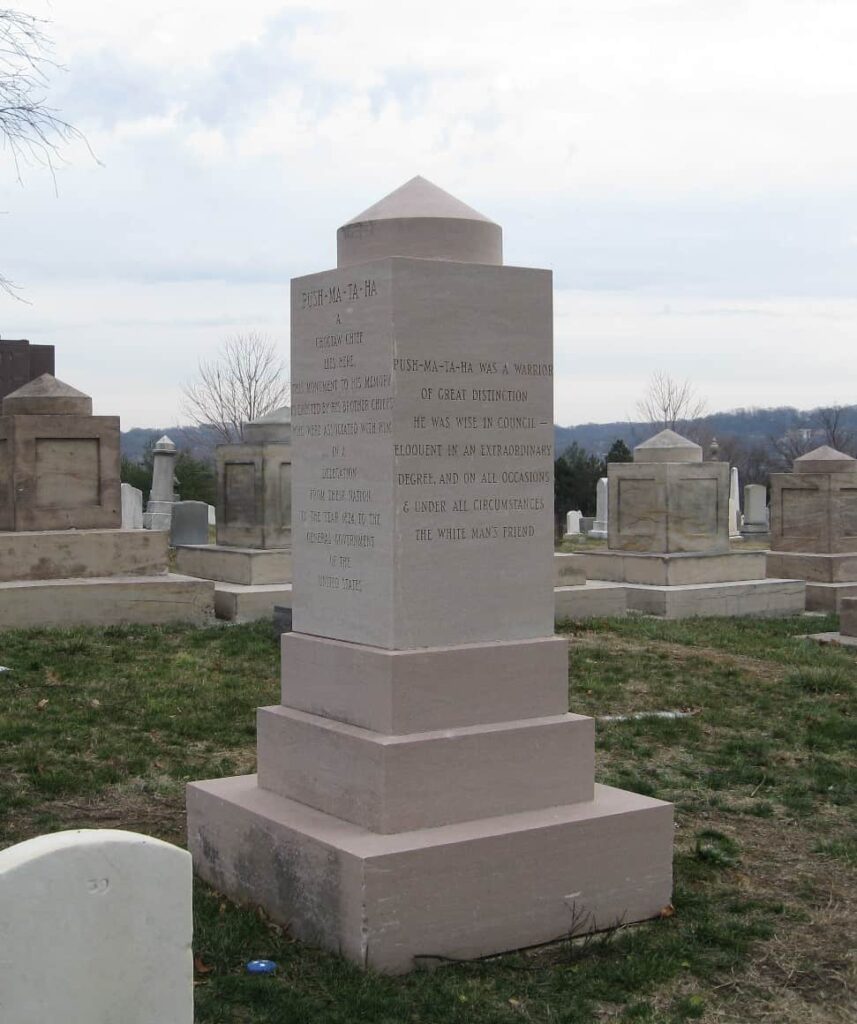
Sources:
www.thenmusa.org (National Museum of the U.S. Army)

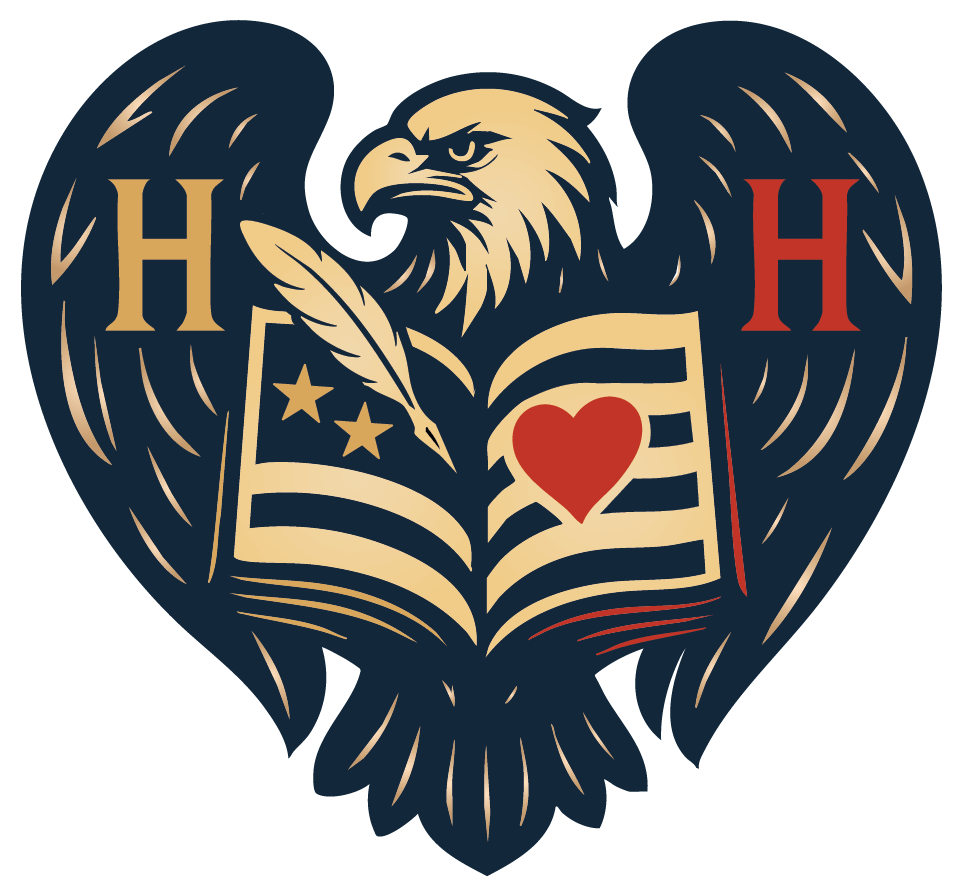
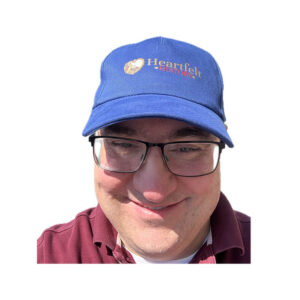
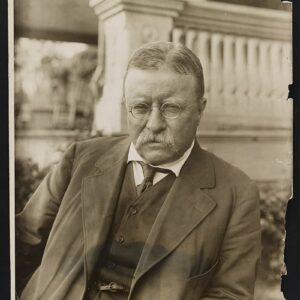
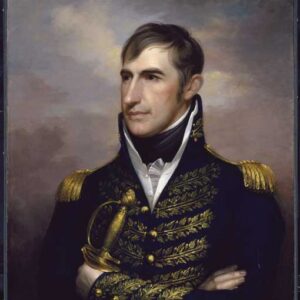
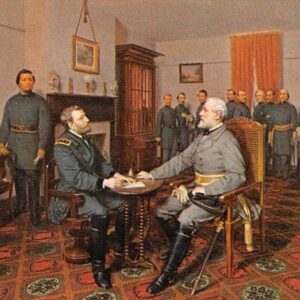



Leave a Reply